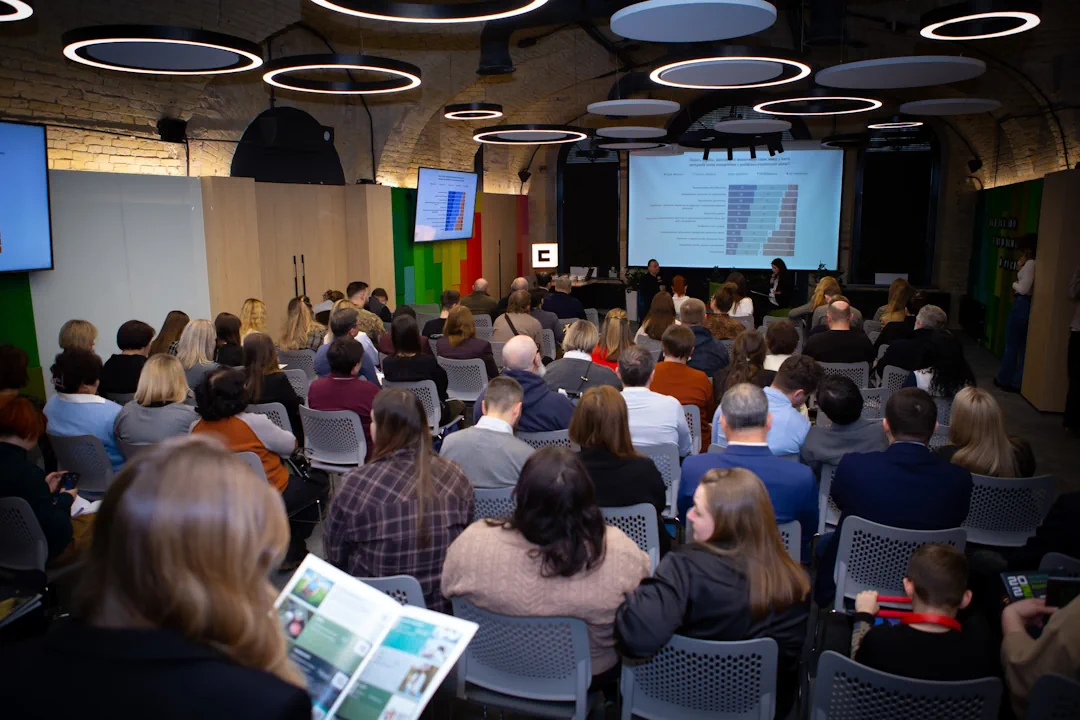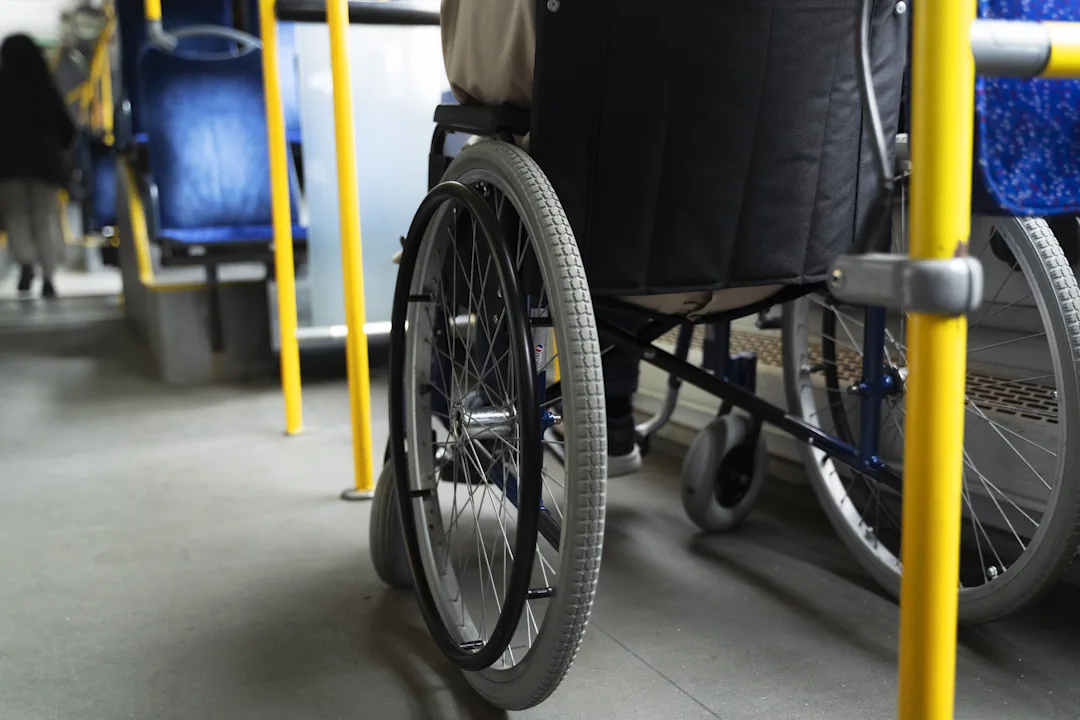02.08.2023
YOUNG PEOPLE'S ATTITUDES TOWARDS THEIR OWN BUSINESS: A COMPARISON BETWEEN UKRAINE AND THE EU
The research was conducted by Rating Lab.
The survey for the research in Ukraine was conducted by the Rating Sociological Group on the Rating Online platform.
DESIRED EMPLOYMENT
The vast majority of young people surveyed in Ukraine prefer self-employment and their own business (73%), and only 19% want to be employed. In contrast to Ukraine, young people in the EU mostly want to be employed (56%), with only 39% preferring self-employment.
This is not surprising, as there has been a trend towards self-employment in Ukrainian society for quite some time, and moreover, modern realities require sufficient mobility, which may push young people towards remote work. However, the answers to further questions show that this intention remains at the level of ideas and seems to be more socially desirable.
In the EU, young people do not seek to be self-employed, especially in Northern European countries, as this creates greater risks for job security, so the trend towards such employment is declining. It is important to note that it is among the self-employed in the EU that there are more people at risk of poverty or social isolation than among employees, among whom there are twice as few such people.
Perhaps this is due to high taxes on businesses, or perhaps it is due to good conditions for employees, legislative and social protection, the existence of effective trade unions, compliance with contracts and agreements, more formal employment, and a smaller shadow economy. Or perhaps their desire for independence and freedom in decision-making, their willingness to take risks, is less than that of Ukrainian youth.
In 2021, almost a quarter of all self-employed people in the EU were at risk of poverty and social isolation (among employees, this share was only 11%). Compared to the previous year and looking at activity status, this was the only category that experienced a deterioration in the poverty situation. This is primarily a consequence of the pandemic.
Moreover, the level of self-employment in the EU is declining, and in 2021 it was at its lowest level – 13.1%. The EU is gradually moving towards salaried employment rather than self-employment. As in the EU, the youngest respondents in Ukraine aspire to self-employment. However, while in the EU young women are more likely than young men to aspire to be salaried employees, there is no such difference in Ukraine. The difference between young people in cities and villages is insignificant – in cities, only 5% more aspire to be employed, which may be due to greater opportunities to find well-paid jobs.
Well-off young people are more oriented towards self-employment, as they have more financial capital for potential investments in their own businesses.
A significantly smaller proportion of unemployed young people in Ukraine (61%) want to be self-employed, possibly because they do not consider their experience sufficient, are unsure of their ability to find a job in principle, or do not want to work.
For those Ukrainians who do choose to work for a company, the most important factor is a regular, stable income (64%) – a need that clearly reflects the instability of modern life. In second place are a lack of finances and resources to work for themselves (42%) and a lack of confidence in their own abilities. Thirty-eight per cent need fixed hours, and 36% need additional knowledge, skills, and abilities.
Among the most frequently cited reasons for not taking the risk of self-employment, young people often lack additional knowledge and confidence, and possibly support from older colleagues. At the same time, scepticism on the part of investors is the least frightening factor.
A regular stable income is also important for European youth (46%), but for a smaller percentage of respondents. For them, job security and access to social protection are much more important (39%). Less important are a lack of financial resources (22%) and fixed working hours (29%). They are more concerned that investors do not take young people seriously.
At the same time, the most motivating factors for Ukrainian youth in their pursuit of self-employment are, first and foremost, personal satisfaction from the implementation of an idea (65%). So, despite the difficult economic situation in Ukraine, young people are still focused on their own interests and satisfaction from their activities. In second place are improving their financial situation (55%) and independence and freedom (55%). These values are very important to young people, as the task of youth is to separate themselves, create their own social circle, and learn to understand their own needs. That is why family orientation is less relevant.
Personal satisfaction from bringing ideas to life is almost twice less interesting to Europeans (33%), as are prospects for improving income (29%), probably because income opportunities are less limited in Ukraine: here, it is possible to earn very little or to rise financially quite rapidly. The desire to be useful to society is also less pronounced (17% compared to 28% in Ukraine). However, they are almost twice as interested in the chance of quick profits (14% compared to 8%), the opportunity to take advantage of existing business opportunities (14% compared to 6%) and the influence of family or friends (9% compared to 5%).
Interestingly, the younger group is much more focused on quick profits. This may be due to the fact that the 15-18 age group is still largely unfamiliar with professional activities and has certain romanticised ideas about entrepreneurship. The older a young Ukrainian is, the more they are focused on improving their income and benefiting society – they value social involvement in the development of society. The more affluent a young person is, the more they see entrepreneurship as a way to enjoy the fulfilment of their ideas. The lower the standard of living, the more young people see entrepreneurship as an opportunity to be independent and, at the same time, useful to society. Young people who work or study are more likely to perceive self-employment as an opportunity to implement ideas. Those who work also see the prospect of improving their income. Those who study are also focused on independence and freedom, while those who are not working see entrepreneurship as a way out if they cannot find employment.
STARTING A BUSINESS
Only a third of respondents who expressed interest in starting their own business took concrete steps to do so. This applies to young people in both Ukraine and the EU. A detailed analysis shows that young Ukrainian men are more active than women in taking real steps to start a business. Working young Ukrainians are much more inclined towards self-employment: they are more active in taking steps to start a business, because any job and employment is experience. Young people who are still studying have generally not started anything yet.
In the EU, the perception of one's own business as an opportunity to pursue one's passion and as a way to support the country is much less pronounced (46% versus 63% in Ukraine). It seems that Europeans perceive their own business differently than we do, without such an emphasis on interest and self-expression; for them, it is less about self-realisation and patriotism. At the same time, the importance of involving employees in decision-making is twice as high (15% vs. 7%), although it is still not among the top goals — collegiality in decision-making is more important.
In Ukraine, the main goal is for young people to pursue their own interests and passions (63%). In their aspirations, young people are moving away from the perception of work solely as an activity for earning money and from the understanding of an employee as a ‘cog in the system.’ From the point of view of current career guidance theories, this movement is in line with contemporary trends, as our interests are what can most effectively motivate us to develop and enjoy our work.
Support for the region and the country is also important (39%), which echoes wartime, the growth of patriotism in society, and the strengthening of social ties (in the EU – only 12%).
Most Ukrainian youth want to do business in trade (18%) and IT or online commerce (14%). Culture, design and tourism are also popular. Manufacturing ranks fifth with only 7%. At the same time, younger people are more inclined towards IT and online commerce, while older people prefer trade, design and manufacturing. Design is the most attractive business for unemployed young people.
Less interesting are education, scientific research, and engineering, which do not appear to be profitable in Ukraine and are mainly carried out on a non-commercial basis due to extremely limited state funding. Marketing, business support, and financial services appear even less attractive. Ukrainians' interest in commerce and retail is twice as high as in the EU. Interest in manufacturing is also almost twice as high. Europeans, in turn, are more interested in building businesses in marketing, PR and advertising, education and scientific research, and consulting. This may be due to the EU's focus on intellectual services rather than manufacturing and agriculture in small business.
When it comes to start-up capital, Ukrainian youth rely primarily on themselves and their own savings (77%). About a quarter rely on salaries and banks. Other opportunities to raise start-up capital seem unlikely. Unemployed young people will seek support from state institutions, while those in employment will rely on their own savings and existing salaries.
Ukrainians are much more willing to rely on their own savings and salaries than Europeans (77% vs. 57%). Europeans, on the other hand, trust banks (33%), government institutions (12%), crowdfunding (11%), and microfinance lending (9%) more. In other words, while our young people are mostly focused on themselves and their own resources, Europeans are more willing to seek help from others.
IMAGE OF ENTREPRENEURS
Ukrainian youth describe the image of an entrepreneur as a person who is first and foremost courageous and ambitious – these are personal characteristics in the image. The rational (active) component is a person who creates new products, services and jobs. Respondents associate entrepreneurs with positive characteristics, largely rejecting negative ones. This is not surprising, as the vast majority of young people aspire to be entrepreneurs and somewhat idealise this type of employment.
Meanwhile, Europeans more often than Ukrainians noted negative characteristics of entrepreneurs, such as ‘only thinking about profit’ (18% vs. 9%), ‘exploiting other people's labour’ (14% vs. 8%), and ‘being reckless’ (8% vs. 1%). Ukrainians, on the other hand, tended to focus on positive characteristics such as courage (57% vs. 34%), ambition (53% vs. 32%), and creativity (44% vs. 22%).
Most likely, we are dealing with different perceptions of entrepreneurship at the cultural level, where in Ukraine entrepreneurial activity is more idealised and even romanticised, while in the EU, on the contrary, it is less attractive. This is because in Ukraine, entrepreneurship is seen as a way to achieve self-fulfilment and success in an unstable, crisis-ridden world, while young people in the EU prioritise salaried employment, which provides stability and social guarantees.
Those who are focused on their own businesses have a more attractive image of entrepreneurs, who also strive to improve the world.
ENTREPRENEURIAL TRAITS
Most entrepreneurial qualities are rated highly in the self-assessment of Ukrainian youth.
Over 80% (45% definitely apply to me, 42% somewhat apply to me) of respondents consider themselves to be people who value initiative and freedom of action; 75% (30% and 45%) consider innovation, new products and services to be important; 67% (25% and 42%) are willing to take risks to achieve their goals; 57% (21% and 36%) consider it important to be a leader rather than just a team member; 42% (15 and 27%) – for whom freedom is more important than order and security; 42% (15 and 27%) – who know how to ‘sell’ goods or ideas to others; 27% (9 and 18%) – support aggressive competition.
Thus, the ability to ‘sell’ and aggressive competition, which most people view negatively, probably because of its ‘aggressiveness,’ are certain exceptions. This also corresponds to the image of entrepreneurs that Ukrainian youth have formed: bold, ambitious, innovative, creating new jobs.
So, all this together makes people really keen to be entrepreneurs – it's an appealing image that helps boost self-esteem and build an attractive professional self-image.
Entrepreneurial qualities are less pronounced in women, but the only reliable gender differences are in the importance of innovation and the desire to be a leader, which is traditionally more pronounced in men because they are socialised more often in our culture to leadership and change-making. Men are much more likely to support aggressive competition than women, which is also a masculine trait, while women are less prone to aggressive behaviour in principle, which is a result of their socialisation. Freedom is also somewhat more important to men. Therefore, men value leadership, innovation, aggressive competition and freedom of action more than women.
The youngest group differs significantly in that they consider freedom and sales skills to be important traits of an entrepreneur, especially when compared to the oldest group. In turn, the oldest group considers risk-taking to be less of an inherent trait of entrepreneurs. This is understandable, as the older a person gets, the better they usually assess the consequences of their actions and the less prone they are to risk, especially reckless risk.
People who are highly willing to take risks to achieve their goals are more likely to start their own business – this correlation is the strongest.
The second factor is freedom of action, initiative and the ability to ‘sell’.
In third place is the desire to be a leader and the pursuit of innovation.
About the Laboratory:
The Rating Lab research laboratory was founded in March 2021 and is part of a large team that also includes the Rating Sociological Group and the Rating Online Platform.
After the full-scale invasion of 2022, Rating Lab shifted its research focus to the psychological and social aspects of human and national life during wartime.
Today, the Laboratory develops and implements diagnostic tools to determine the dynamics of psychological and social processes at the level of the individual, community and society as a whole, both in Ukraine and abroad. In particular, in 2023 alone, surveys of Ukrainians were conducted in more than 40 countries around the world.
Rating Lab has at its disposal both well-known measurement tools and unique developments, quantitative and qualitative analytical studies.
For comments and cooperation, please contact:
Marianna Tkalych,
Doctor of Psychology, Professor, Founder and Director of Rating Lab
tkalych@ratinggroup.ua
+38 (050) 322-09-25
Methodology
The research audience in Ukraine: young people aged 15-30. Sample size: 900 respondents. Survey method: CAWI (Computer Assisted Web Interviewing) was conducted on the basis of a combined random sample of mobile phone numbers using Big Data Kyivstar, Vodafone, and messengers. The margin of error of the study with a confidence level of 0.95: no more than 3.5%.
Fieldwork dates: 20-25 May 2023
Prepared by experts Tetiana Skrypchenko and Hanna Chatchenko under the supervision of the director of the Rating Lab Research Laboratory, Doctor of Psychology, Professor Marianna Tkalich.
Research audience in the EU: young people aged 15-30, covering 27 countries of the European Union (EU27).
Sample size: 25,992 respondents. Sample size for each country: 500 in Luxembourg, Cyprus and Malta, and 1,000 in all other countries. The EU survey was conducted by Eurobarometer between 10 and 20 October 2022 on behalf of the European Commission, Directorate-General for Employment, Social Affairs and Inclusion.
Survey method: CAWI (Computer Assisted Web Interviewing) using the Ipsos panel and their network of partners.



